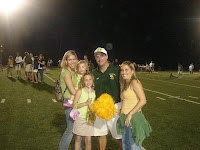The Super Bowl and America’s Priorities: Time to Invest in Education
Every year, millions of Americans gather around their TVs on Super Bowl Sunday, indulging in food, drinks, and the excitement of the biggest sporting event of the year. The Super Bowl isn’t just about football—it’s a reflection of our culture, our spending habits, and, perhaps most importantly, our priorities as a nation.
But here’s something to consider: Every single player on that field got their start in school. Whether it was on a high school football team, an after-school league, or even just a gym class where a coach saw their potential, their journey began with education. Without schools, without teachers, and without dedicated coaches, none of these athletes would be on that field chasing Super Bowl glory.
The Spending Gap: Super Bowl vs. Education
Let’s look at the numbers:
- The average amount spent per student K-12 in U.S. public schools is on average $17,700 per year or $50 a day.
- The average amount spent per student at the public post-secondary level (or college) is on average $30,230 per year or over $200 a day.
- On Super Bowl Sunday, the average family spends over $80 on food, drinks, and party supplies—just for one night.
- In total, Americans spent over $17.3 billion on Super Bowl-related purchases in 2024.
The contrast is staggering. We pour billions into a single event, yet K-12 schools across the country struggle with outdated textbooks, underpaid teachers, and underfunded programs. Imagine if we invested even a fraction of our Super Bowl spending into education—what kind of future could we create for the next generation?
Teachers: The Real MVPs
Ask any Super Bowl player who made an impact on their life, and you’ll hear stories of a coach who pushed them, a teacher who believed in them, or a mentor who helped shape their path. Yet, despite their crucial role, teachers often face low pay, dwindling resources, and a lack of respect in our society.
What if we used the Super Bowl—this massive, culture-defining event—as a platform to highlight the importance of education? What if, instead of just selling cars and snacks, Super Bowl commercials also celebrated teachers, promoted literacy, and encouraged investment in schools?
Reconfiguring Our Priorities
Football is a beloved tradition, and there’s nothing wrong with celebrating the Super Bowl. As a former high school football coach for 21 years, a fantasy football addict, and a professional college football tailgater -- I'm guilty as charged. But as a nation, we must ask ourselves: Are we giving education the same level of attention, funding, and respect?
This year, as we cheer for our favorite team, let’s also remember where these athletes came from. Let’s advocate for better school funding, support our teachers, and ensure every child has access to the education they deserve.
Because when we invest in education, we’re not just shaping future Super Bowl champions—we’re building a stronger, smarter, and more successful America.



